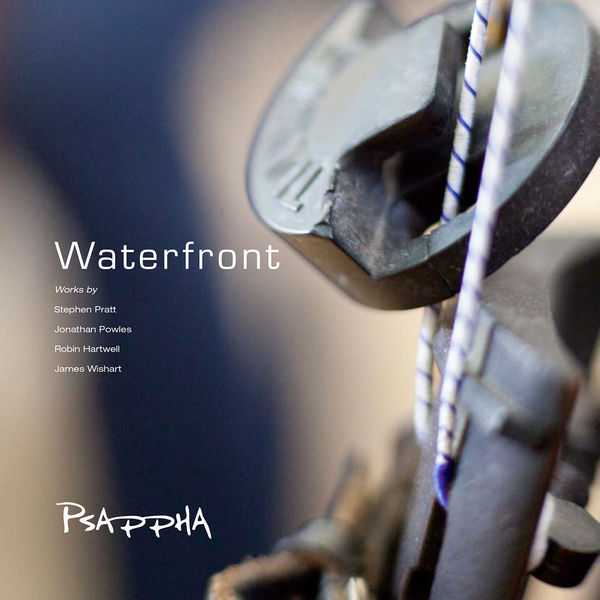
Composer: Robin Hartwell, Jonathan Powles, Stephen Pratt, James Wishart
Performer: Psappha, Richard Casey
Number of Discs: 2
Format: FLAC (tracks)
Label: Psappha
Catalogue: PSA1005
Release: 2022
Size: 293 MB
Recovery: +3%
Scan: cover
CD 01
Pratt: Undulations and Other Movements
01. I. Entrée
02. II. Éclosions
03. III. Fixed Point I
04. IV. Undulations
05. V. Fixed Point II
06. VI. Finale et départ
07. Powles: Shorelines
08. Hartwell: Cruciform Trio
09. Wishart: The Leaving of Liverpool
CD 02
Powles: Quartet for Clarinet, Piano & Strings
01. I. —
02. II. —
03. III. —
04. IV. —
05. V. —
06. Hartwell: Intermezzo for Piano
07. Wishart: Ziggurat
Pratt: At the Turn of the Year
08. I. Quasi improvisando
09. II. Presto
10. III. Presto possibile!
11. IV. Crotchet = 40
“Waterfront” brought together four composers based in universities in Liverpool in the late 1990s; Stephen Pratt, Robin Hartwell and Jonathan Powles from Liverpool Hope, and James Wishart from the University of Liverpool. Each of the composers is represented by an ensemble work written specifically for Psappha and this recording.
A chance conversation about mime studies with a student at the Le Coq School in Paris helped shape the character of the individual movements of Stephen Pratt’s Undulations and Other Movements. In addition, the central movement reflects the beautiful rolling countryside of the south Charente in France, where the bulk of the work was written.
Robin Hartwell’s Cruciform Trio (flute, cello, piano) dwells on the role of melody (largely represented by the flute) and harmony (here, the piano). The role of the cello, caught between responsibility to the harmony and a desire for the flight of melody, is described by the composer as “tinged with self-doubt and guilt”.The tripartite aspect of the title is reflected at a number of levels, not least the three-part form employed.
Jonathan Powles describes his Quartet as being “an obvious and somewhat light-hearted homage to Messiaen’s Quartet for the End of Time”. Whilst each of the five movements employs an “emblematic gesture” from the Messiaen, references to other twentieth century sources, notably Schoenberg and Stravinsky, can be heard. Like Robin Hartwell’s Trio, the starting point for James Wishart’s Ziggurat was that of a shape, in this case a stepped pyramid. Within the work, incremental musical “steps” are intercut with musical images the composer describes as “aerial view” and “side view”.
Each of the composers contributes a keyboard work. Robin Hartwell’s Intermezzo from 1982 relates to the later piano pieces of Brahms; Stephen Pratt’s At the Turn of the Year from December 1991 similarly looks back, but here over a year just ended. Jonathan Powles’ Shorelines from 1996, written largely at two seaside locations (Barmouth, Wales and Bateau Bay, Australia) reflects not so much on the scenery as seeing the shoreline as a boundary between the predictable and the unpredictable.
The most poignant track comes with James Wishart’s haunting The Leaving of Liverpool, for piano and three “drone” strings. Wishart died in March, 2018 after some four years of serious ill-health, but not before friends gathered at his bedside to listen to a radio broadcast of this work given by Psappha a year or so earlier. Here it provides a fitting tribute to a formidable musical mind which, whilst capable of the most complex work, also understood the power of simplicity.